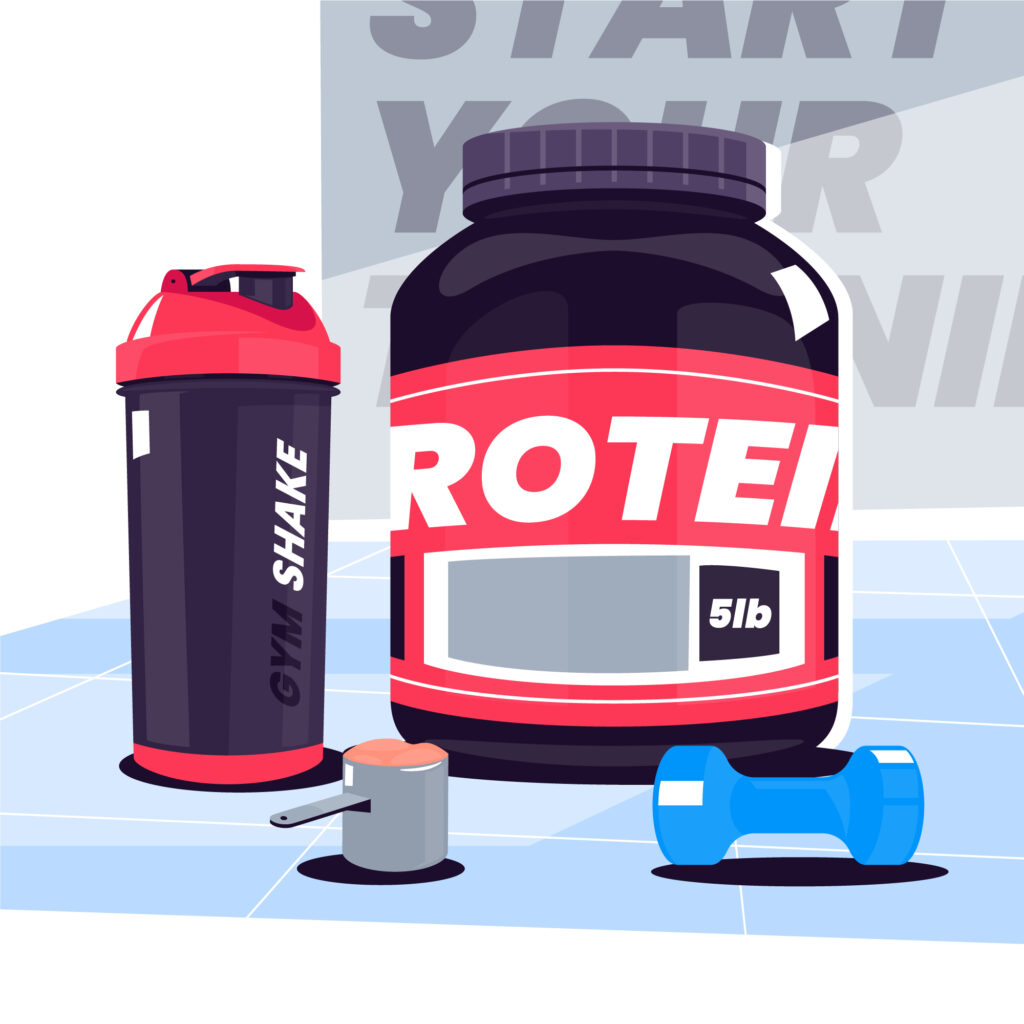
Are you ready to take your post-workout routine to the next level and maximize your fitness results? In this comprehensive guide, we will delve into the essential strategies for optimizing your post-workout nutrition and protein intake. From understanding the importance of post-workout nutrition to exploring different protein sources and crafting the ideal post-workout meal plan, we’ve got you covered. Let’s dive in with the following outline:
- Understanding the Importance of Post-Workout Nutrition
- The Role of Protein in Muscle Recovery and Growth
- Timing Is Key: When to Consume Protein for Maximum Benefits
- Exploring Different Protein Sources: From Whey to Plant-Based Options
- Balancing Macronutrients: The Ideal Post-Workout Meal Composition
- Crafting Your Post-Workout Meal Plan for Optimal Results
- Hydration: The Overlooked Component of Post-Exercise Recovery
- Maximizing Muscle Synthesis: Tips for Enhancing Nutrient Absorption and Utilization

Understanding the Importance of Post-Workout Nutrition
Ensuring proper nutrition after your workout is crucial for maximizing your efforts in the gym. Post-exercise nutrition plays a significant role in replenishing glycogen stores, repairing damaged muscle tissues, and supporting overall recovery. Without adequate nutrients, your body may struggle to recover efficiently and could hinder your progress in achieving your fitness goals.
The Role of Protein in Muscle Recovery and Growth
Protein is often hailed as the king of nutrients when it comes to muscle recovery and growth. After a workout, your muscles undergo stress and damage that need to be repaired. Protein provides the essential amino acids required for muscle protein synthesis, ultimately leading to muscle repair and growth. Including an adequate amount of protein in your post-workout meal is key to promoting muscle recovery and maximizing your gains.
Timing Is Key: When to Consume Protein for Maximum Benefits
The timing of your post-workout protein intake can significantly impact your recovery and muscle-building efforts. Consuming protein within the window of opportunity after your workout (typically within 30 minutes to two hours) has been shown to enhance muscle protein synthesis. This is when your muscles are primed to absorb nutrients and initiate the repair process. By prioritizing protein intake during this critical period, you can optimize your muscle recovery and performance.

Exploring Different Protein Sources: From Whey to Plant-Based Options
There are various sources of protein available, each with its unique benefits and considerations. Whey protein, derived from dairy, is a popular choice for its fast absorption rate and high amino acid content. On the other hand, plant-based options like pea protein or soy protein can be excellent alternatives for individuals following a vegetarian or vegan diet. Experiment with different protein sources to find what works best for your body and preferences.
Balancing Macronutrients: The Ideal Post-Workout Meal Composition
In addition to protein, it’s essential to consider the other macronutrients—carbohydrates and fats—in your post-workout meal. Carbohydrates help replenish glycogen stores depleted during exercise and provide energy for muscle recovery, while healthy fats support hormone production and overall cell function. Balancing these macronutrients in your post-workout meal can optimize your nutrient intake and promote better recovery and performance.
Crafting Your Post-Workout Meal Plan for Optimal Results
Creating a well-rounded post-workout meal plan involves thoughtful consideration of your nutritional needs and goals. Aim to include a combination of high-quality proteins, complex carbohydrates, and healthy fats to support muscle repair, replenish energy stores, and promote overall recovery. Experiment with different meal options and recipes to find what satisfies your taste buds while meeting your nutritional requirements for post-exercise recovery.

Hydration: The Overlooked Component of Post-Exercise Recovery
While nutrition often takes the spotlight, hydration is a crucial but sometimes overlooked component of post-exercise recovery. Water plays a vital role in regulating body temperature, transporting nutrients, and removing waste products from the body. Dehydration can hinder muscle recovery and performance, so be sure to prioritize fluid intake before, during, and after your workouts to stay adequately hydrated and support optimal recovery.
Maximizing Muscle Synthesis: Tips for Enhancing Nutrient Absorption and Utilization
To further enhance your post-workout nutrition benefits, consider strategies to maximize muscle protein synthesis and nutrient absorption. Consuming a combination of protein and carbohydrates can stimulate insulin release, which helps drive nutrients into muscle cells and promote recovery. Additionally, incorporating foods rich in vitamins and minerals, such as fruits and vegetables, can support overall health and enhance nutrient utilization for improved recovery and performance.

Optimizing your post-workout nutrition and protein intake is essential for maximizing your fitness results and achieving your goals. By understanding the importance of post-workout nutrition, prioritizing protein for muscle recovery and growth, timing your nutrient intake strategically, exploring diverse protein sources, balancing macronutrients, crafting a personalized meal plan, staying hydrated, and implementing strategies to enhance nutrient absorption, you can take your post-exercise recovery to the next level. Remember that consistency and attention to detail in your post-workout routine can make a significant difference in your overall progress and performance. Embrace these essential strategies and watch your fitness goals become a reality.